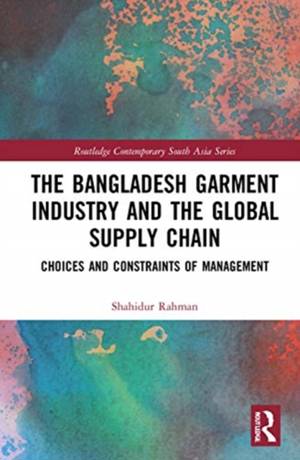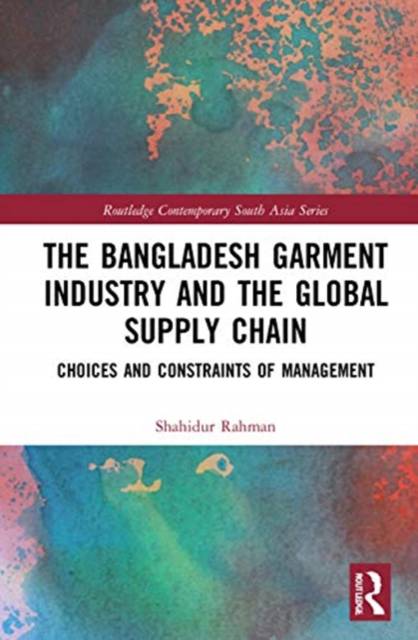
- Retrait gratuit dans votre magasin Club
- 7.000.000 titres dans notre catalogue
- Payer en toute sécurité
- Toujours un magasin près de chez vous
- Retrait gratuit dans votre magasin Club
- 7.000.0000 titres dans notre catalogue
- Payer en toute sécurité
- Toujours un magasin près de chez vous
The Bangladesh Garment Industry and the Global Supply Chain
Choices and Constraints of Management
Shahidur RahmanDescription
This book analyzes the choices and constraints of management within the Bangladesh garment industry and how management negotiates these challenges to ensure the global garment supply chain is sustainable.
Exploring the international South Asian garment industry and using middle management and the owners of Bangladeshi factories as a case study, the book assesses the limits and costs of globalization for Bangladesh, and outlines the challenges of the fast-fashion business model for the global market. It focusses on the changing dynamics of the entrepreneur class, how they manage factories and their experiences with Accord-Alliance, and the challenges of sustainability. Within these four broader themes, the author critically examines management strategies towards compliance and labour productivity, transnational governance, buyer-supplier relationships, and power dynamics. This book is the first to explore management's perceptions of workers, buyers, and government through an analysis of four factories which demonstrate the role of mid-level management, how supervisors treat production workers, workers' impact on innovation, welfare programmes as well as CSR policies, and the impact of COVID-19.
Offering new perspectives on Bangladesh's garment export industry, this book will be of interest to researchers in the field of policy studies, labour studies, South and South-East Asian studies, development studies, international trade, and political science.
Spécifications
Parties prenantes
- Auteur(s) :
- Editeur:
Contenu
- Nombre de pages :
- 148
- Langue:
- Anglais
- Collection :
Caractéristiques
- EAN:
- 9780367709693
- Date de parution :
- 18-06-21
- Format:
- Livre relié
- Format numérique:
- Genaaid
- Dimensions :
- 156 mm x 234 mm
- Poids :
- 417 g

Les avis
Nous publions uniquement les avis qui respectent les conditions requises. Consultez nos conditions pour les avis.






